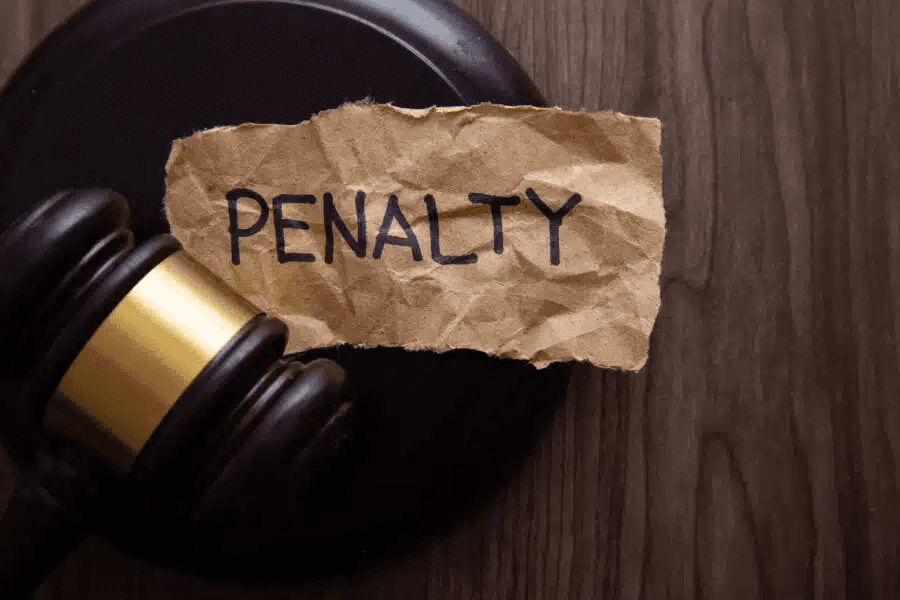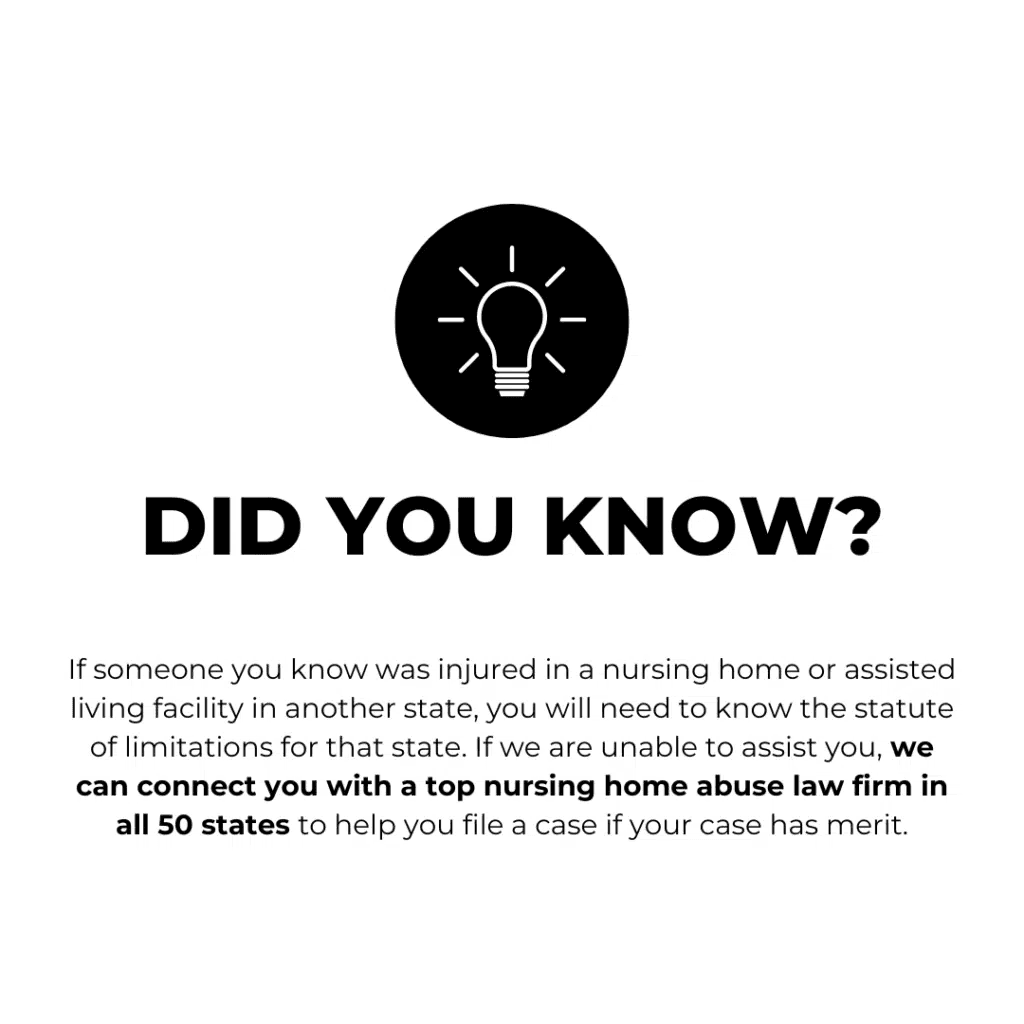
Nursing home abuse and neglect put vulnerable residents at serious risk, leading to malnutrition, dehydration, infections, and preventable injuries. When facilities fail to provide adequate care, residents suffer, and families are left feeling helpless. Lack of supervision, improper medical treatment, and unsafe conditions can result in devastating harm. Understanding the warning signs, knowing your legal rights, and holding negligent facilities accountable are crucial steps in protecting your loved ones. Learn how to take action and seek justice.
November 6, 2024
3 min
Nursing home neglect is a critical issue affecting thousands of elderly residents across the United States. While state agencies attempt to address these concerns through investigations and monetary penalties, their efforts often fail to create lasting change. Nursing home neglect and abuse persist because the penalties imposed by regulatory bodies frequently fail to serve as a meaningful deterrent. Many nursing home owners, driven by profit, view these penalties as minor costs of doing business rather than catalysts for reform – little more than a slap on the wrist.
In contrast, trial lawyers are often more effective at holding nursing home owners accountable for neglect. Lawsuits brought by experienced attorneys can result in significant financial damages, public accountability, and structural changes within the industry. Skilled trial lawyers focusing on nursing home neglect are often a more powerful tool for combating neglect than state-imposed fines.
Nursing home neglect is a widespread problem that includes a range of failures in care, such as inadequate hygiene, untreated medical conditions, insufficient nutrition, and emotional abuse. These failures often stem from understaffing, poor training, and cost-cutting measures nursing homes took to maximize profits. The victims of this neglect are some of society’s most vulnerable individuals: elderly residents who may be physically frail, cognitively impaired, or unable to advocate for themselves.
According to the National Center on Elder Abuse, nearly one in three nursing homes in the U.S. has been cited by state agencies for abuse violations that could harm or endanger residents. This alarming statistic shows the need for a more effective means of holding nursing homes accountable for their actions.
State governments regulate nursing homes, conduct inspections, and impose penalties when violations occur. However, these penalties are often inadequate in addressing the systemic issues contributing to neglect.
State-imposed fines may reach thousands of dollars, but for-profit nursing home owners—particularly those backed by large corporations or private equity firms—often consider these penalties minor operational costs. The potential for significant profits typically outweighs the financial impact of these fines. As a result, many facilities choose to pay the penalties and continue operating as they have been, with little incentive to implement substantial changes to improve care.
State agencies often need more resources to consistently enforce penalties or ensure compliance with corrective actions. Regulatory bodies are typically understaffed and underfunded, limiting their ability to conduct thorough investigations or follow up on violations. Without adequate oversight, nursing homes may implement superficial changes to pass inspections without addressing the root causes of neglect.
While well-intentioned, this regulation system is ultimately insufficient in curbing widespread neglect in an industry that prioritizes profits over residents’ well-being.

In contrast to state penalties, trial lawyers provide a more effective means of holding nursing homes accountable for neglect. Through civil litigation, attorneys representing neglect victims can seek damages that reflect the actual cost of the harm residents and their families suffered. In many cases, the financial consequences of a jury verdict far exceed the penalties imposed by regulatory agencies, creating a stronger incentive for nursing homes to change their practices.
One of the primary reasons lawsuits are more effective than state penalties is the potential for substantial financial compensation. In a civil lawsuit, victims of nursing home neglect can seek compensatory damages for medical expenses, pain and suffering, and emotional distress. Punitive damages may also be awarded in cases of egregious neglect or abuse. These damages are designed to punish the facility for its wrongdoing and deter similar future behavior.
Unlike state-imposed fines, which are often limited by statutory caps, jury verdicts can result in multi-million-dollar awards. For profit-driven nursing homes, these financial penalties can significantly impact their bottom line, forcing them to re-evaluate their practices and prioritize resident care.
Lawsuits also provide a means of holding nursing homes publicly accountable for their actions. While state investigations are often conducted behind closed doors, civil lawsuits bring neglect and abuse to light in a public forum. Court proceedings, media coverage, and the threat of a tarnished reputation can pressure nursing homes to improve their standards of care to avoid further legal action and public scrutiny.
In many cases, lawsuits are a wake-up call to nursing homes that may have previously ignored state penalties. The risk of a costly and highly publicized lawsuit can force facilities to take corrective action and make lasting improvements to prevent future neglect.
Lawsuits against nursing homes can also set important legal precedents that benefit other victims of neglect. When a jury finds a nursing home liable for neglect and awards significant damages, it sends a clear message to the industry that substandard care will not be tolerated. These legal precedents can influence other cases, encouraging more victims and their families to pursue justice through the courts.
Moreover, the threat of future lawsuits can motivate nursing home owners to invest in better staffing, training, and resources to avoid potential litigation. By holding nursing homes accountable in court, trial lawyers help drive systemic change within the industry, ultimately leading to better care for residents.
Jury verdicts play a critical role in holding nursing homes accountable for neglect and abuse. Unlike state penalties, which are often seen as mere regulatory nuisances, jury verdicts represent the collective judgment of ordinary citizens who are appalled by the mistreatment of vulnerable residents. These verdicts send a powerful message to the nursing home industry: neglect and abuse will not go unpunished.
Punitive damages are key to jury verdicts in nursing home neglect cases. These damages are awarded when a nursing home’s conduct is deemed especially harmful or egregious. Their purpose is to punish the wrongdoer and deter similar behavior in the future. Punitive damages can reach millions of dollars, making them a significant financial deterrent for profit-driven nursing home operators.
For nursing home owners, the prospect of punitive damages is far more alarming than state-imposed fines. The potential for a large jury award forces nursing homes to examine their practices more closely and make meaningful changes to avoid future litigation. In this way, punitive damages are a powerful tool for reforming an industry that has long prioritized profits over people.
Civil lawsuits empower victims of nursing home neglect and their families to seek justice on their terms. While state investigations can be slow and bureaucratic, lawsuits allow families to take immediate action and hold nursing homes accountable for the harm they have caused. Pursuing legal action gives families a sense of control and provides a pathway to closure, financial compensation, and, in many cases, improved care for other residents.
Lawsuits also give a voice to residents who may be unable to advocate for themselves due to cognitive impairments or physical disabilities. By filing lawsuits for their loved ones, families ensure that nursing homes are held accountable for neglect and that residents’ rights are protected.
While lawsuits are an effective means of holding nursing homes accountable, they are not without challenges. Nursing home operators often have substantial legal resources at their disposal, and they may use these resources to fight claims of neglect and abuse. Additionally, some states have passed laws limiting the amount of damages that can be awarded in medical malpractice and neglect cases, making it more difficult for victims to secure fair compensation.
Despite these challenges, trial lawyers have proven to be resilient advocates for victims of nursing home neglect. By navigating complex legal systems and fighting for justice, they have helped to hold nursing home owners accountable and secure meaningful reform in the industry.
Trial lawyers and jury verdicts have emerged as more effective tools for holding nursing homes accountable for neglect than state investigations and monetary penalties. Civil lawsuits allow victims and their families to seek substantial financial compensation, public accountability, and systemic change within the nursing home industry.
While state-imposed fines may be seen as manageable operational costs by profit-driven nursing home owners, the financial consequences of a jury verdict can have a far more significant impact on a facility’s bottom line. Punitive damages and the public scrutiny accompanying lawsuits are potent incentives for nursing homes to prioritize resident care over profit. As more families turn to the legal system to seek justice, the nursing home industry will be forced to confront its shortcomings and implement meaningful reforms to protect the well-being of its most vulnerable residents.
Michael Hill is a nationally recognized attorney who handles exclusively cases against long term care facilities. Michael and his firm, Michael Hill Trial Law, are headquartered in Cleveland, Ohio but handle cases across the country.
Disclaimer: This information is provided for informational purposes only. Nothing in this article should be construed as providing legal advice or the creation of an attorney client relationship. Laws are updated frequently and change from state to state. If you desire legal advice, you can contact Michael Hill Trial Law at www.protectseniors.com, send an email to info@protectseniors.com, call (800) 659-2712 to begin an investigation, or contact another attorney.